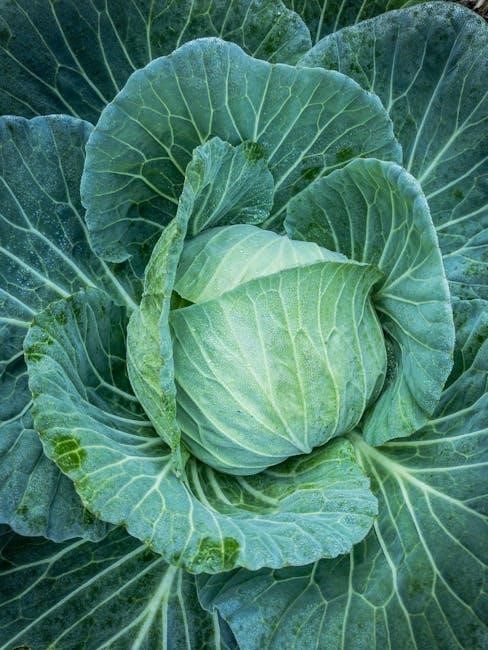
A well-organized plant-based diet food list is essential for transitioning to a healthier‚ more sustainable lifestyle; It helps you plan meals‚ shop efficiently‚ and ensure nutritional balance while exploring delicious‚ whole-food options․
Overview of Plant-Based Diets and Their Benefits
A plant-based diet focuses on whole‚ minimally processed foods derived from plants‚ emphasizing vegetables‚ fruits‚ whole grains‚ legumes‚ nuts‚ and seeds․ It minimizes animal products and processed items‚ promoting improved health and sustainability․ This dietary approach is linked to reduced risks of chronic diseases‚ such as heart disease‚ diabetes‚ and certain cancers‚ while also supporting weight management and gut health․ Additionally‚ plant-based diets contribute to environmental benefits by lowering greenhouse gas emissions and reducing resource consumption․ By prioritizing nutrient-dense foods‚ individuals can achieve a balanced and satisfying diet that supports overall well-being and aligns with ethical and ecological values․
Vegetables on a Plant-Based Diet

Non-starchy vegetables like broccoli‚ spinach‚ and carrots are rich in vitamins‚ minerals‚ and fiber‚ making them a cornerstone of a healthy plant-based diet․
Common Vegetables and Their Nutritional Benefits
Leafy greens like spinach and kale are packed with vitamins A‚ C‚ and K‚ while cruciferous vegetables such as broccoli and Brussels sprouts offer cancer-fighting compounds․ Root vegetables like carrots and sweet potatoes are rich in fiber and antioxidants‚ supporting healthy digestion and immune function․ Bell peppers provide vitamin C and antioxidants‚ aiding in immune health and inflammation reduction․ Incorporating a variety of colorful vegetables ensures a broad intake of essential nutrients‚ making them a foundational component of a balanced plant-based diet․ These vegetables are versatile and can be easily added to salads‚ stir-fries‚ or roasted as side dishes‚ enhancing both flavor and nutritional value․
Fruits in a Plant-Based Diet
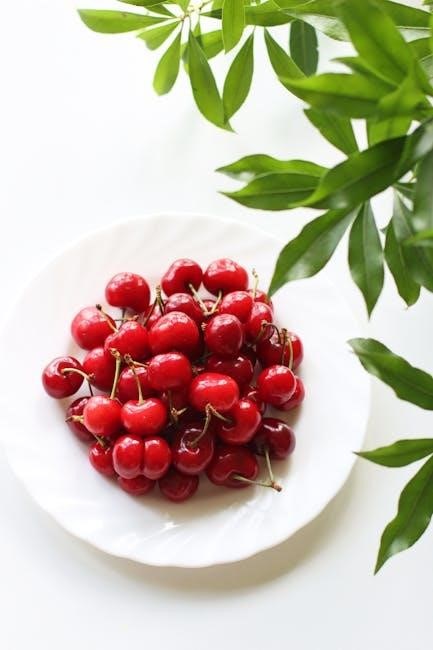
Fruits are a vibrant and essential part of a plant-based diet‚ offering natural sweetness‚ vitamins‚ and antioxidants․ They add variety and freshness to meals‚ supporting overall well-being․
Tropical Fruits and Berries for Variety and Nutrition
Tropical fruits like mangoes‚ pineapples‚ and papayas‚ along with berries such as blueberries and strawberries‚ add vibrant flavors and nutrients to a plant-based diet․ These fruits are rich in vitamins A and C‚ potassium‚ and antioxidants‚ supporting immune function and overall health․ Incorporating them into meals provides natural sweetness and variety‚ making plant-based eating more enjoyable․ Berries are particularly high in fiber and antioxidants‚ while tropical fruits offer refreshing hydration and tropical flavors․ Including a mix of these in your grocery list ensures a balanced intake of essential nutrients and keeps your diet exciting and nutritious․
Whole Grains for a Plant-Based Diet
Whole grains like quinoa‚ brown rice‚ oats‚ and barley are rich in complex carbs‚ fiber‚ and nutrients․ They provide sustained energy and support healthy digestion and overall well-being․
Examples of Whole Grains and Their Health Benefits
Whole grains like quinoa‚ brown rice‚ oats‚ and barley are nutrient-rich‚ offering complex carbohydrates‚ fiber‚ and essential vitamins․ Quinoa is a complete protein‚ ideal for plant-based diets․ Brown rice provides manganese and selenium‚ supporting immune function and antioxidant defenses․ Oats are high in soluble fiber‚ promoting heart health by lowering cholesterol․ Barley is rich in dietary fiber‚ aiding digestion and blood sugar control․ Incorporating these grains enhances meal variety and ensures a balanced intake of nutrients‚ supporting overall well-being and energy levels throughout the day․
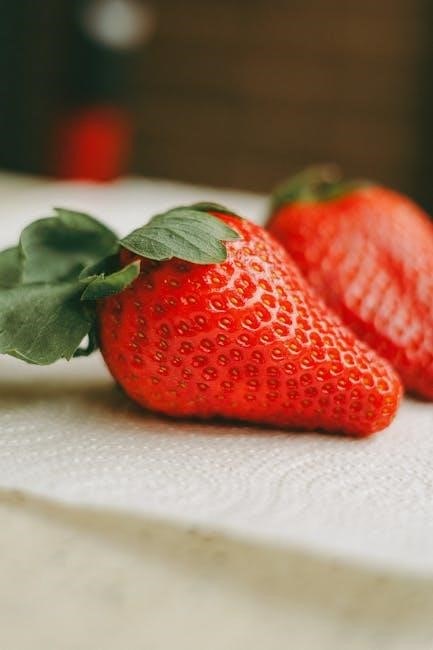
Legumes and Beans
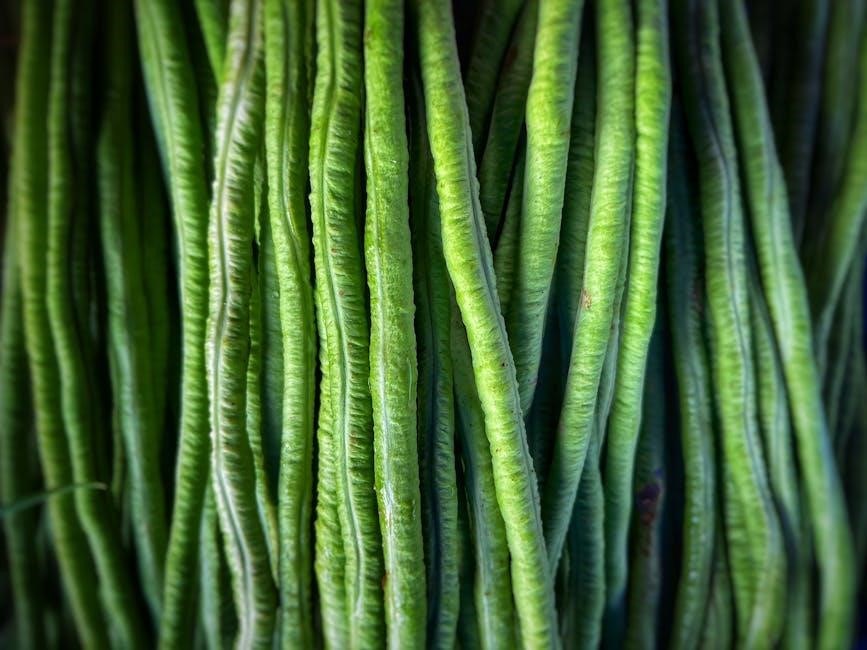
Legumes and beans are versatile‚ protein-rich staples in a plant-based diet‚ offering essential nutrients like fiber‚ iron‚ and B vitamins․ They are cost-effective and sustainable․
High-Protein Plant-Based Foods for a Balanced Diet
Legumes and beans are excellent high-protein plant-based foods‚ ideal for a balanced diet․ Lentils‚ chickpeas‚ black beans‚ and kidney beans are packed with protein‚ fiber‚ and essential nutrients․ Lentils provide 18g of protein per cup‚ while chickpeas offer 15g․ Black beans and kidney beans are rich in iron and B vitamins‚ making them great for energy and overall health․ These versatile foods can be incorporated into soups‚ salads‚ and main dishes‚ ensuring a protein-rich diet without animal products․ They are also cost-effective and environmentally sustainable‚ making them a cornerstone of plant-based nutrition․ Including a variety of legumes and beans ensures a well-rounded and nutritious diet․
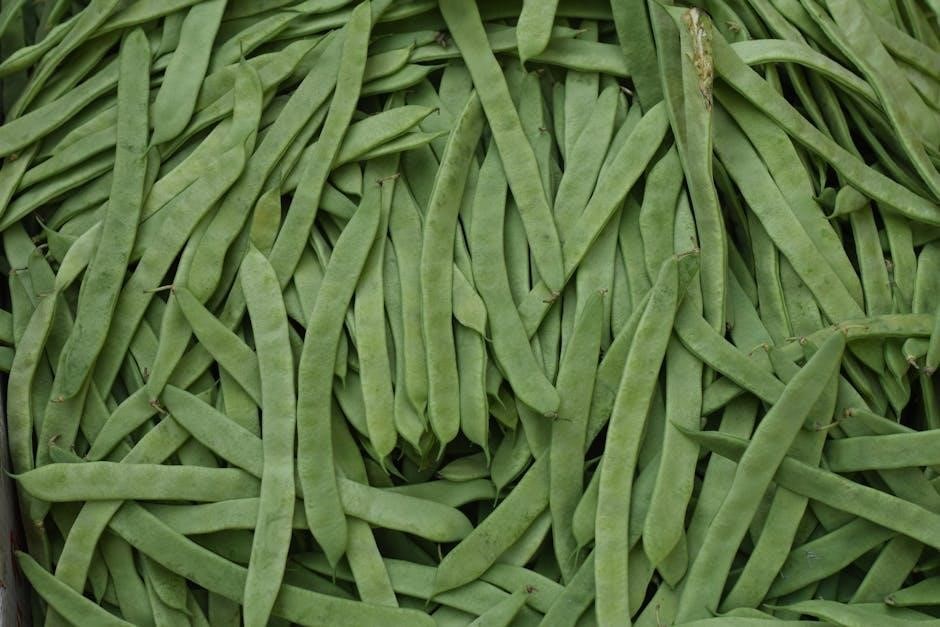
Nuts and Seeds
Nuts and seeds are excellent sources of healthy fats and make nutritious snacking options․ They add versatility to plant-based meals and are rich in essential nutrients․

Healthy Fats and Nutritious Snacking Options
Nuts and seeds are excellent sources of healthy fats‚ making them ideal for snacking and enhancing plant-based meals․ Almonds‚ walnuts‚ chia seeds‚ and flaxseeds are rich in omega-3s and fiber‚ supporting heart health and digestion․ These nutrient-dense options provide sustained energy and satisfy cravings․ Incorporate them into smoothies‚ salads‚ or enjoy as portable snacks․ For variety‚ try nut butters like peanut or almond butter‚ paired with whole grain bread or veggies․ Seeds like sunflower and pumpkin offer protein and minerals‚ while flaxseeds support gut health․ Always opt for unsalted‚ unsweetened versions to avoid excess sodium and sugar․ Nuts and seeds are versatile‚ nutritious‚ and perfect for maintaining a balanced plant-based diet․ Portion control is key to reap their benefits without overconsumption․

Spices and Seasonings
Spices and seasonings add flavor to plant-based meals without needing animal products․ Basil‚ cumin‚ turmeric‚ and cinnamon enhance dishes naturally‚ promoting health and variety in your diet․
Adding Flavor to Plant-Based Meals
Spices and seasonings are essential for enhancing the flavor of plant-based dishes․ Herbs like basil‚ oregano‚ and thyme add fresh‚ aromatic notes‚ while cumin‚ turmeric‚ and paprika provide warmth and depth․ Chili flakes and cayenne pepper introduce a spicy kick‚ perfect for vibrant recipes․ Black pepper‚ garlic powder‚ and onion powder are staples for boosting flavor in everyday meals․ Citrus zest or vinegar can brighten dishes‚ creating a balanced taste․ These ingredients not only elevate meals but also offer health benefits‚ such as anti-inflammatory properties from turmeric and antioxidants from herbs․ Experimenting with global spices like garam masala or berbere can inspire diverse‚ exciting plant-based creations․ A well-stocked spice rack ensures meals are never bland‚ making plant-based eating both nutritious and delicious․
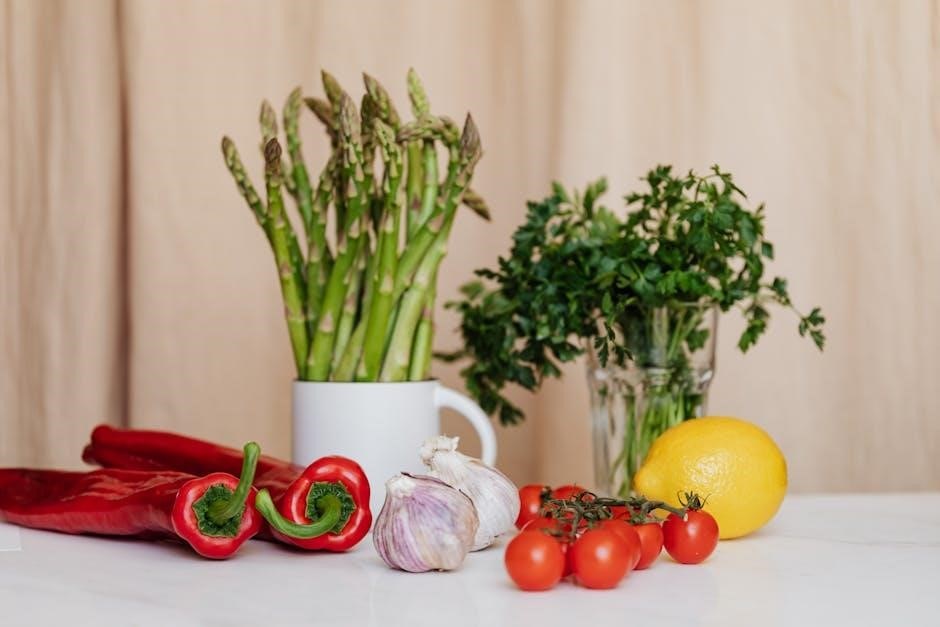
Meal Planning Strategies
Plan weekly meals to ensure variety and nutrition․ Create a grocery list based on favorite plant-based recipes to stay organized and save time while shopping․
Creating a 7-Day Sample Menu
A 7-day plant-based menu offers variety and balance‚ ensuring nutritional needs are met․ Start with overnight oats for breakfast‚ a hearty lentil soup for lunch‚ and quinoa stir-fry for dinner․ Day two could feature smoothies‚ chickpea salads‚ and stuffed bell peppers․ Incorporate whole grains like brown rice and farro‚ paired with roasted vegetables․ Legumes like black beans and chickpeas provide protein-rich options․ Snacks include nuts‚ seeds‚ and fresh fruits․ Each meal should include a mix of colors to ensure a wide range of vitamins and minerals․ Adjust portions and ingredients based on preferences and dietary needs․ This structured approach simplifies meal planning and grocery shopping‚ making a plant-based diet easy to follow and enjoy․
Importance of a Plant-Based Grocery List
A well-organized plant-based grocery list is crucial for maintaining a balanced and sustainable diet․ It ensures you stock up on essential foods like fruits‚ vegetables‚ whole grains‚ legumes‚ and nuts‚ while avoiding processed items․ Having a list helps you shop efficiently‚ stick to your budget‚ and reduce food waste․ It also serves as a guide to ensure you cover all nutritional bases‚ from protein-rich legumes to healthy fats from nuts and seeds․ A printable PDF list is particularly handy‚ as it allows you to check off items as you shop․ By planning ahead‚ you can create delicious‚ varied meals while supporting local farmers and sustainable practices․ A grocery list is the foundation for a smooth transition to a plant-based lifestyle․